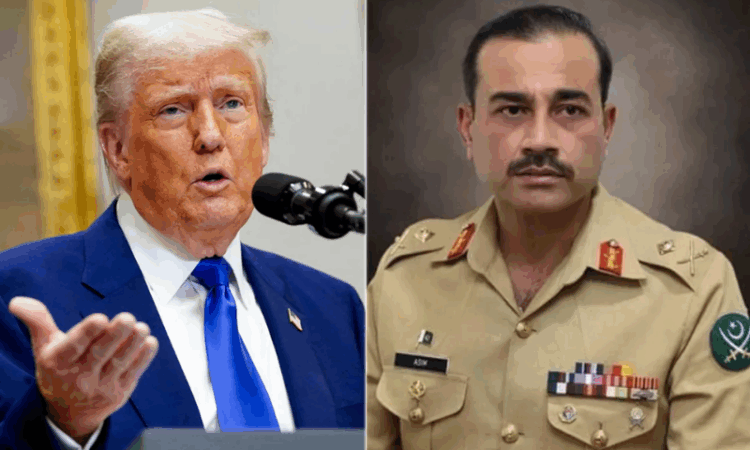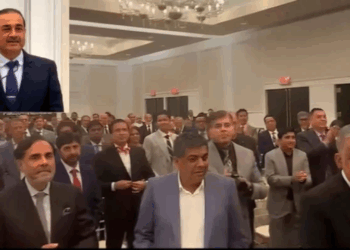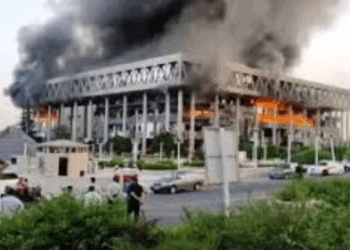Washington D.C., June 18, 2025: In an unprecedented diplomatic engagement, Field Marshal Syed Asim Munir, Pakistan’s Chief of Army Staff, is all set to hold high-level talks with U.S. President Donald J. Trump and members of the U.S. Cabinet at the White House on Wednesday. This marks the first time in Pakistan’s history that a serving Army Chief has been hosted at the White House for a solo meeting of such scale and significance.
The landmark visit, which includes a formal lunch with President Trump and detailed discussions with the entire U.S. Cabinet, is being hailed as a defining moment in Pakistan–U.S. relations and a powerful recognition of Pakistan’s military leadership on the global stage.
While former military leaders such as General Pervez Musharraf met U.S. Presidents during their tenure, it was in his capacity as Pakistan’s President. Generals Raheel Sharif (2015) and Qamar Javed Bajwa (2022) also made official visits to Washington, but none were received at the White House by the President nor held discussions with the full Cabinet.
Field Marshal Munir’s solo visit sets a new precedent. No civilian government representative accompanied him, making this a rare and powerful instance of direct military-to-executive diplomacy.
Key highlights of the visit
- First-of-Its-Kind White House Meeting:
This is the first time a Pakistani Army Chief has been received at the White House in this capacity, underscoring a strategic shift in diplomatic engagement. - Lunch with President Trump and Cabinet Discussions:
The formal luncheon and subsequent discussions with President Trump and his Cabinet point to a deepening of bilateral relations beyond traditional military channels. - Departure from protocol:
Traditionally, such engagements are reserved for civilian leaders or state delegations. Field Marshal Munir’s exclusive invitation signals a shift in how U.S. policymakers view Pakistan’s military leadership in regional diplomacy.
Why this matters
- High-Level Strategic Trust:
The meeting reflects growing trust in Pakistan’s military leadership amid shifting geopolitical alignments, particularly in South Asia and the Middle East. - Pakistan–India Ceasefire Context:
The visit comes in the wake of a U.S.-brokered ceasefire between Pakistan and India, placing Pakistan’s military at the heart of critical regional diplomacy. The timing — with Munir’s visit preceding any Indian engagement — indicates a recalibration in U.S. strategic priorities. - Regional Relevance Amid Iran–Israel Tensions:
With rising tensions between Iran and Israel, Pakistan’s proximity to Iran adds weight to its regional significance. Washington’s outreach to Pakistan’s Army Chief underscores Pakistan’s potential role in stabilizing the region. - Military-Only Diplomacy:
The absence of a civilian delegation highlights confidence in the Pakistan Army as a key interlocutor on matters of security and strategy — a rare case of military-only diplomacy at such a high level.
A Defining moment for Pakistan
This historic engagement is being viewed in Pakistan as a moment of national pride and international recognition. It not only redefines the scope of military diplomacy but also signals the evolving stature of Pakistan’s armed forces in the global strategic arena.
Field Marshal Asim Munir’s meeting at the White House is more than symbolic — it may well reshape the contours of Pakistan’s foreign policy influence for years to come.








